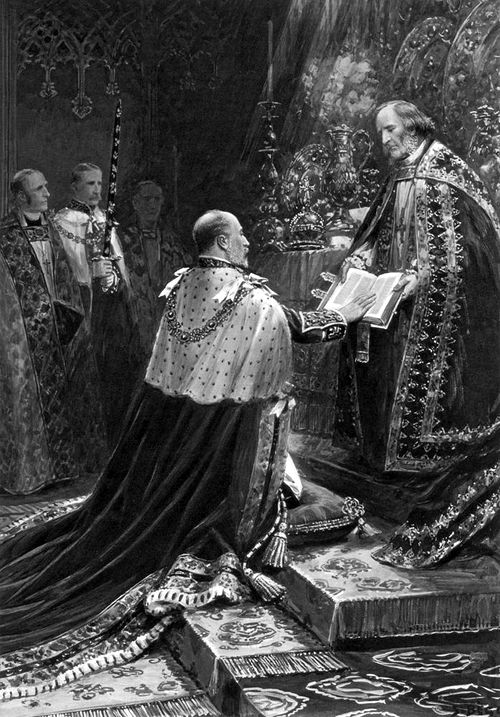Location
Northumbria University - London Campus

As the 2023 coronation of King Charles III highlighted, oaths remain a feature of modern British public life. Indeed, though largely taken for granted, oaths and declarations continue to play a much wider role within many state agencies (e.g., cabinet government, parliaments, the judiciary, the magistracy, the armed forces, and the police force). Oaths also feature in other parts of life in the UK: professions including doctors, senior lawyers, and CoE ministers are still required to take oaths. Oaths are also a requirement of some civil society groups (e.g., the Scouts) and are required for membership of some mass-membership associations (e.g., Freemasonry and Orangeism). And since 2004, oaths have been performed at UK citizenship ceremonies up and down the country. Crucially, all these oaths are not just subscribed to in writing, but also performed in person, often in a public, ceremonial context.
In recent decades, early modern historians have advanced our understandings of oaths and oath-taking. As a result, we now have a much better understanding of the role of oaths in changing conceptions of the political community, evolving crown-subject/state-citizen relations, and in relation to generating trust during the upheavals of the seventeenth century and their aftermath. However, understanding the evolution and role of oaths over the longue durée (especially beyond the early eighteenth century) requires more attention, and without assuming they inevitably declined after their early modern heyday. While in the British context, the practice of national oath-taking led by the state declined after the early eighteenth century, oaths remained in common use for a wide variety of purposes. For example, oaths were ubiquitous in civil society, taken on a peer-to-peer basis on admission to friendly societies, trade unions, and various forms of voluntary association. Similarly, although the use of oaths as religious tests to disbar non-Anglicans from public office was largely dismantled in the nineteenth century, this does not explain the varied and continued use of written and oral oaths right up to the present day. Rather than charting a decline from an early modern peak and seeing oaths as an archaic practice that retains a residual presence today, we instead want to explore the different roles that oaths perform and have performed and why this has mattered in different temporal, geographic, social, and political contexts.
This one-day interdisciplinary conference to be held on 11 September 2025 at the London Campus of Northumbria University. It seeks to bring together early modern and modern historians, as well as scholars from across the humanities and social sciences, to consider the historical and contemporary roles of oaths and oath-taking in Britain and Ireland, and beyond.
Programme (all panels in Room 301)
10.30 – 10.45 | Welcome
10.45 – 12.15 | Panel 1: Cultures of Oath-taking
Carl Griffin (Sussex): ‘Illegal’ oaths and cultures of confederacy in English rural popular protest, c.1740-1840
Maya Kreiner (Hebrew University/Dubnow Institute): ‘Words’ and ‘Things’ in Mandatory Palestine: British Debates on the Oath for the Legislative Council
Nalina Gopal (UCL): Oaths as Performative Utterances: Exploring the Intersection of Language and Law in Colonial Singapore, Penang, and Malacca (18th-20th centuries)
12.15 – 1 | Lunch
1- 3 | Panel 2: Oaths, Authority, and Exclusion
Laura Stewart (York): The Covenants and the Tender of Union in Cromwellian Scotland
Joshua Grey (Monash): The obligation which it imposes on the Sovereign’: The Coronation Oath in Press Discourses on Catholic Emancipation, 1800-1829
David Torrance (House of Commons Library): The Coronation Oath
Andrew Fincham (Independent Scholar) From Persecution to Affirmation: The Quaker Experiences of Oaths
3 – 3.15 | Break
3.15 – 4.45 | Panel 3: Oaths and Law
Hillary Taylor (Padua): ‘No more harm than breaking a stick’: Popular Attitudes to Oath-Taking and Perjury in Quarter Sessions Records, c. 1660-1750
Zoe Jackson (Cambridge): Untruths Under Oath: Defining Perjury in Early/Modern Perspective
Aidan Collins (Newcastle): The Role, Jurisdiction, and Authority of Bankruptcy Commissioners in Early Modern Debt Recovery, 1684-1733
4.45 – 5 | Break
5 – 6 | Panel 4: Roundtable
Contact: Dr. Henry Miller, henry.miller@northumbria.ac.uk
Supported by the Past & Present Society, the Social History Society, and History: The Journal of the Historical Association
Organisers: Dr. James McConnel and Dr. Henry Miller
Image: Wiki Commons
